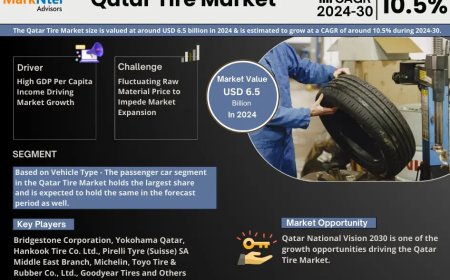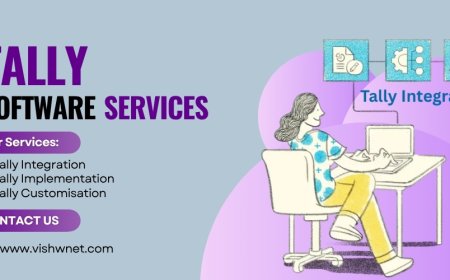Global Enterprise Resource Planning (ERP) Software Market: Opportunities and Competitive Landscape

Enterprise Resource Planning (ERP) software plays a crucial role in unifying diverse business processes into a single, streamlined system. By centralising operations like accounting, procurement, project management, and supply chain activities, ERP solutions empower organisations to make informed decisions and drive productivity. In todays digital-first economy, companies from various verticals embrace ERP to eliminate data silos and boost collaboration. The increasing shift towards cloud-based solutions, combined with the demand for real-time analytics, continues to propel the popularity of ERP systems worldwide. As industries undergo digital transformation, the ERP market stands as a cornerstone of business efficiency and competitiveness.
Expert Market Research Insights on the Enterprise Resource Planning (ERP) Software Market
Driven by the evolving demands of modern industries, the enterprise resource planning (ERP) software market continues to thrive with significant momentum. Expert Market Research highlights that businesses across sectors increasingly rely on ERP solutions to streamline operations, enhance transparency, and boost productivity. As digital transformation accelerates, companies are rapidly adopting advanced ERP software to integrate various functions, from finance to supply chain management. The insights by Expert Market Research shed light on how ERP platforms are becoming indispensable tools, ensuring that organisations remain agile and competitive in a technology-driven world.
Enterprise Resource Planning (ERP) Software Market Size
The global enterprise resource planning (ERP) software market reached an estimated value of USD 47.62 billion in 2024. This robust market size reflects the steady demand for comprehensive solutions that help organisations manage complex workflows effortlessly. Mid-sized and large enterprises, in particular, invest heavily in ERP to gain a holistic view of operations, enhance data accuracy, and comply with regulatory standards. The markets vast scale signifies the critical role ERP plays in modern business strategies. As organisations strive to achieve operational excellence, the demand for scalable and customisable ERP platforms is projected to expand further, creating lucrative opportunities for vendors and technology providers alike.
Enterprise Resource Planning (ERP) Software Market Trends
One of the defining trends shaping the ERP software market is the rapid adoption of cloud-based and SaaS solutions. Companies now prefer flexible, subscription-based ERP systems that offer lower upfront costs and easy scalability. The integration of artificial intelligence, machine learning, and IoT with ERP software is also gaining traction, providing businesses with predictive analytics and enhanced automation capabilities. Mobile accessibility and remote workforce enablement are driving the demand for ERP applications accessible on the go. Another emerging trend is the focus on industry-specific ERP solutions tailored to meet the unique needs of sectors like healthcare, manufacturing, and retail, ensuring a competitive edge and compliance with industry standards.
Market Opportunities and Challenges
The ERP software market offers immense growth opportunities for vendors focusing on technological advancements and industry-specific customisations. Small and medium enterprises (SMEs) represent a significant untapped segment, driving demand for affordable, easy-to-deploy ERP solutions. The increasing reliance on data-driven decision-making further amplifies the need for ERP systems equipped with advanced analytics and AI capabilities. However, the market faces challenges such as high implementation costs, lengthy deployment cycles, and data security concerns, particularly for on-premise systems. Additionally, resistance to organisational change and the complexity of migrating legacy systems to modern ERP platforms pose hurdles that businesses and providers must address proactively.
Segmentation
Breakup by Deployment Type:
- SaaS and Cloud
- On Premise
Breakup by Industry Vertical:
- Manufacturing
- BFSI
- Healthcare
- Retail and Distribution
- Government and Utilities
- IT and Telecom
- Construction
- Aerospace & Defence
- Others
Breakup by Regions:
- North America
- Europe
- Asia Pacific
- Latin America
- Middle East and Africa
Enterprise Resource Planning (ERP) Software Market Growth
The ERP software market is on a steady growth trajectory, fuelled by the expanding digital landscape and the surge in automation across industries. As businesses prioritise operational transparency and data-driven insights, the adoption of ERP systems continues to rise. The push for cloud migration, cost optimisation, and the need for real-time visibility into business processes further contribute to this growth. Governments and large enterprises are investing heavily in upgrading legacy systems to modern ERP platforms, enhancing efficiency and compliance. With emerging markets embracing digital transformation at a rapid pace, the ERP sector is poised to witness sustainable growth and technological innovation in the coming years.
Enterprise Resource Planning (ERP) Software Market Forecast
Looking ahead, the global ERP software market is projected to expand at a CAGR of 8.00% between 2025 and 2034, achieving an impressive value of nearly USD 102.81 billion by 2034. This growth forecast reflects the rising need for integrated business solutions that adapt to evolving market demands. Vendors are expected to leverage AI, machine learning, and IoT to develop next-generation ERP platforms with enhanced capabilities. As digitalisation penetrates emerging economies, more organisations will transition to scalable cloud-based ERP systems. The forecast indicates a thriving landscape where ERP software remains integral to driving business agility, efficiency, and long-term competitiveness.
Competitor Analysis
The ERP software market is characterised by intense competition, with global players innovating to strengthen their foothold. Major companies like Sage Group plc, Chetu Inc., Oracle Corporation, Pegasystems Inc., Infor, Microsoft Corporation, and SAP SE continue to lead the industry through technological advancements, strategic partnerships, and industry-specific solutions. These market leaders invest significantly in R&D to integrate AI and analytics into their platforms, providing clients with smart, future-ready ERP systems that meet diverse operational needs.
Key Players:
- Sage Group plc: Offers flexible ERP solutions with a strong focus on SMEs and cloud migration services.
- Chetu Inc: Provides custom ERP development and integration services tailored for niche business requirements.
- Oracle Corporation: Leading provider with robust cloud ERP suites featuring AI and machine learning integration.
- Pegasystems Inc.: Known for innovative low-code ERP solutions that enhance business agility and automation.
- Infor: Delivers industry-specific cloud ERP software designed for scalability and operational efficiency.
- Microsoft Corporation: Offers Dynamics ERP solutions with seamless integration into its extensive business ecosystem.
- SAP SE: Global ERP leader providing intelligent, enterprise-grade platforms with advanced analytics and AI.
- Others: Various regional and niche players delivering specialised ERP solutions for specific industries.






































